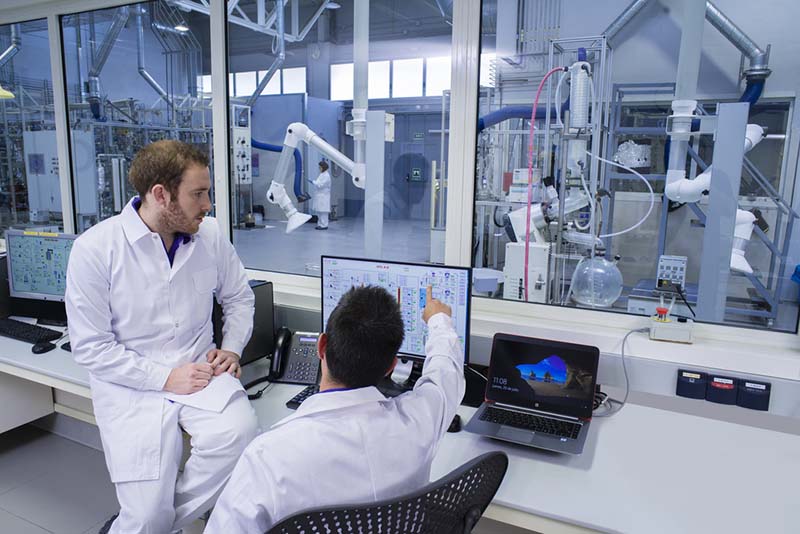- A master class on the energy company’s research projects opens the series
- Upcoming training initiatives will address the ecological transition and the circular economy
The Fundación Cepsa Chair of the Ecological Transition and Innovation at the University of La Laguna has kicked off this year's training initiatives with an online master class on the energy company's research projects. The class will be taught by the director of the Cepsa Research Center, Joana Frontela, and the head of the Chemicals and New Materials division of the same center, Jesús Lázaro.
During the presentation of the session, the director of the Chair, Andrea Brito, highlighted that the master class resumes the cycle started last year and emphasized the importance of the exchange of knowledge and training between Cepsa's professionals and ULL's research professors, while highlighting the symbiosis between research and innovation.
“Master classes are a great tool for knowledge sharing. By sharing their experiences, researchers from companies and the university can mutually benefit from them, and new ideas for collaboration often emerge that are beneficial to both parties and, by extension, to society,” she said.
“In this case, the ULL staff in attendance has been able to learn how to go from a laboratory to the industry, and society has seen the implications of the results of a research project in their daily lives,” concluded the director of the Chair.
Joana Frontela underscored Cepsa’s experience in research projects in her speech and stressed that these initiatives “should always be a priority because they encourage the growth of society.” She also stressed that one of the goals of the projects promoted by the energy company is to increase the volume of knowledge for new applications, as well as to promote knowledge transfer and dissemination.
She added that for a project to be successful, it requires, among other things, the support of management, economic and financial backing, and the implication of the participating team, and it must be valuable for the business.
The director of the Cepsa Research Center cited the scientific method as the basis for carrying out any research project and establishing the steps for its progress. In this sense, she emphasized observation as key to formulating a hypothesis and arriving at a conclusion.
Likewise, she reviewed the different phases of the research project, stressing the importance of selecting a clear and real objective, a concise methodology, and a coherent budget for execution.
Work planning was another of the aspects addressed, and she spoke about the importance of selecting partners and having a procedure in place to deal with changes. In terms of execution, she pointed out the need to rely on experiments and experimental deductions, corrective actions, and following up on activities, and she pointed out the need to motivate personnel.
Joana Frontela stressed that the completion phase of a research project is the most complex, as it requires analytical work, and she insisted that learning plays a fundamental role.
For his part, Jesús Lázaro referred to one of the success stories of the Cepsa Research Center, which worked alongside the Spanish National Research Council to develop an isomerization catalyst for light naphtas.
This initiative took place over several years and involved multiple stages, from work in the laboratory to the construction and start-up of a new unit with a novel process in one of the Company's refineries.
In turn, he explained, the patent was registered in 2015, and the initiative has become a commercial success, with a total of 20 industrial units currently using the Cepsa catalyst.
Extensive training program
An extensive training program will follow this first action throughout the year, including another master class on alternative energy sources for a sustainable circular economy and two workshops that will focus on the ecological transition and energy efficiency and the circular economy.
The Alumno 10C skill training and coaching program, a creation of the Fundación Cepsa Chair at the University of Huelva, will be added as a new initiative. Furthermore, Cepsa personnel will teach a course on Big Data neural networks and machine learning, and an internship program will be available.
Another of the initiatives planned for this year involves holding a congress for students, teachers, and professionals on issues related to the ecological transition. Lastly, to top off its commitment to training, the Fundación Cepsa Chair of the Ecological Transition and Innovation of the University of La Laguna will hold seminars organized by the other Fundación Cepsa Chairs in Madrid and Andalusia, focusing on oil refining, lubricants, and hydrocarbons.

